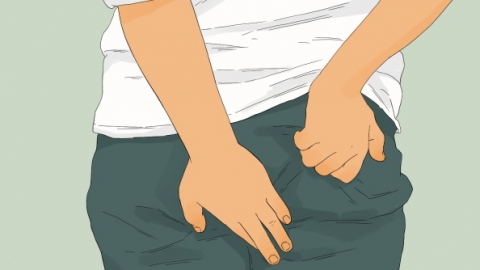Why is perianal abscess prone to develop into anal fistula?
Perianal abscesses are prone to develop into anal fistulas, primarily due to unremoved infection foci, spontaneous rupture of the abscess, incomplete treatment, unique anatomical structure, and repeated infection or irritation. Essentially, the two conditions represent different stages of the same disease. If symptoms such as redness, swelling, pain, or pus discharge around the anus occur, prompt medical attention is recommended.
1. Unremoved infection focus: Perianal abscesses are mostly caused by infection of anal glands. The infection site lies deep within perianal tissues. If only superficial anti-inflammatory treatment is applied without completely eliminating the source, residual bacteria continue to multiply and gradually erode surrounding tissues, leading to the formation of a fistula tract.
2. Spontaneous rupture of abscess: As an abscess matures, it may spontaneously rupture. After the external opening heals, a false healing occurs, trapping pus inside. Persistent bacterial growth and repeated inflammation in the area eventually result in chronic anal fistula formation.

3. Incomplete treatment: If the internal opening is not identified during incision and drainage of the abscess, or if drainage is inadequate, residual pus in tissue spaces can gradually form an abnormal channel connecting the perianal skin to the anal canal, progressing into an anal fistula.
4. Unique anatomical structure: The perianal region has rich vascularity and loose connective tissue, making infections easy to spread and difficult to localize. Once an abscess forms, it tends to extend toward the anal canal, penetrate the anal mucosa to create an internal opening, and ultimately develop into a complete anal fistula.
5. Repeated infection and irritation: After recovery from a perianal abscess, poor perianal hygiene or unresolved triggers such as constipation or diarrhea may lead to reinfection of the anal glands. Recurrent inflammation causes fibrosis and permanent fistula tract formation, resulting in anal fistula.
To maintain perianal health, it is important to keep the area clean and dry, avoid prolonged sitting or standing, follow a light diet avoiding spicy and irritating foods, and maintain regular bowel movements. These measures help reduce irritation to perianal tissues and lower the risk of recurrent infection.




